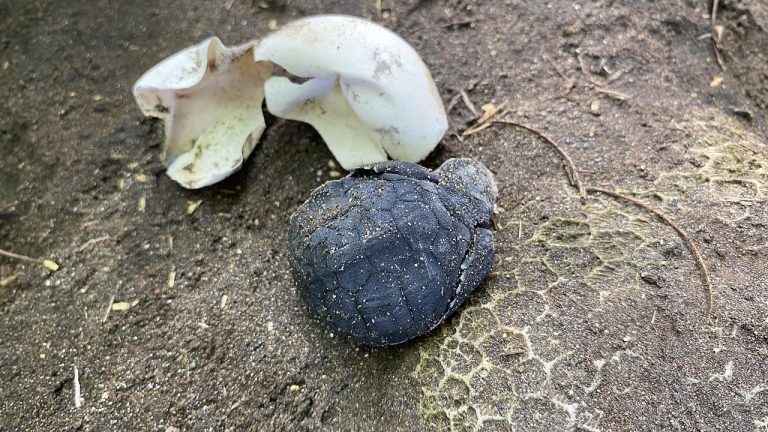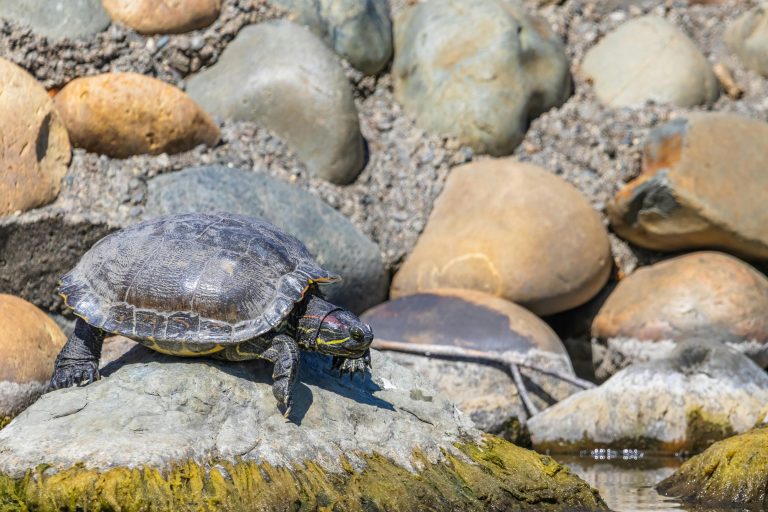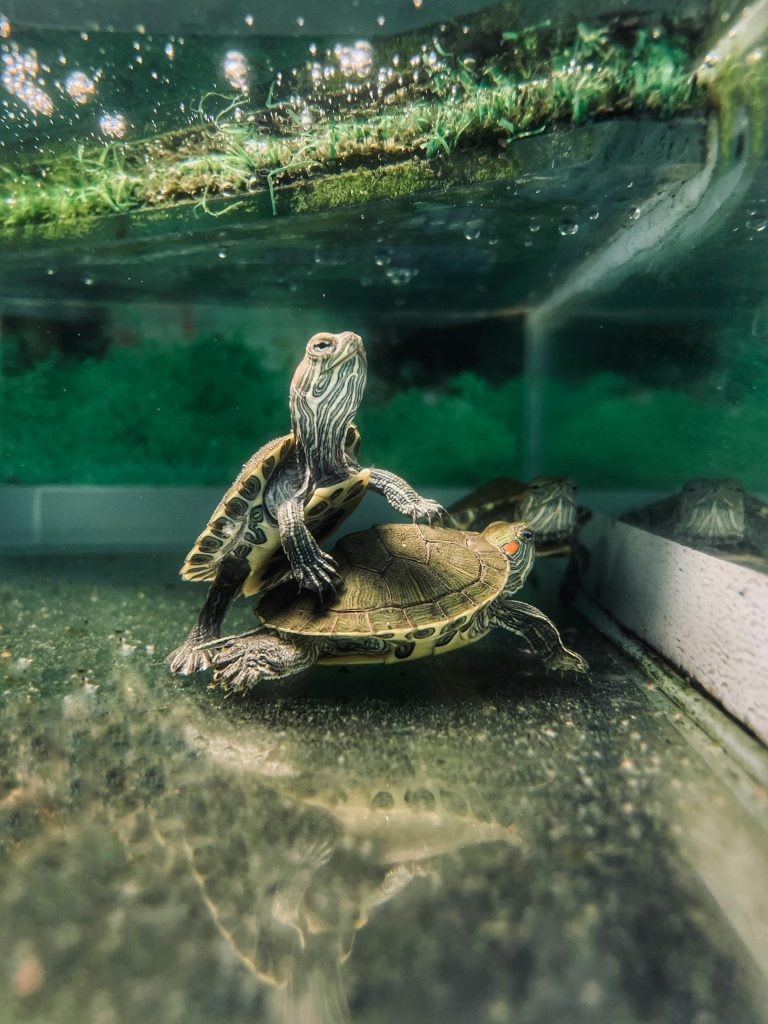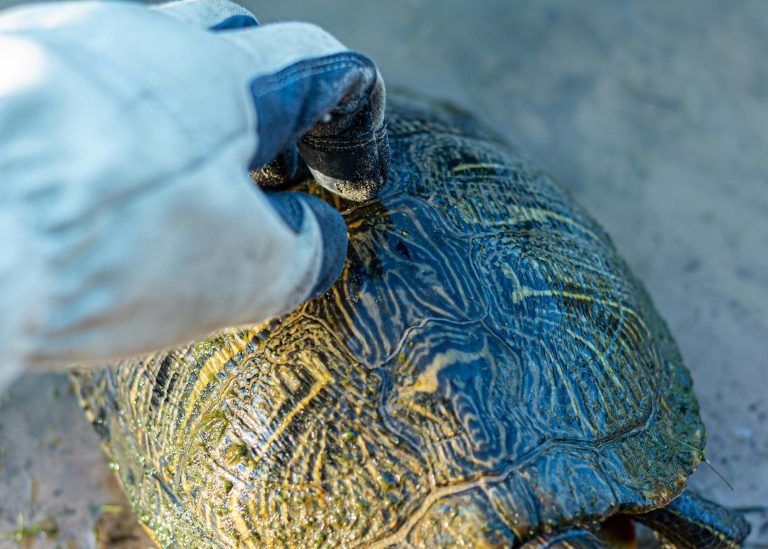Can A Snapping Turtle Kill Your Pet Dog?
You might have observed individuals caring for both dogs and turtles simultaneously. It’s possible to train your dog to coexist peacefully with a turtle. However, the same level of compatibility isn’t guaranteed for turtles, particularly snapping turtles. Snapping turtles are infamous for their formidable bite, capable of inflicting severe harm. So, could a snapping turtle potentially harm or kill your pet dog?
A snapping turtle bite could lead to infection, posing a risk to your pet dog’s life. Additionally, contact with a snapping turtle’s shell could expose your dog to Salmonella bacteria. Furthermore, consuming raw turtle meat can be toxic to dogs, containing tetrodotoxin, a potent poison.
In this article, I will explain how a snapping turtle can be dangerous for your dog and what you should do when a snapping turtle bites your dog.
Can A Snapping Turtle Bite Your Dog?
Dogs, being naturally curious creatures, often find it hard to resist approaching turtles. However, snapping turtles are not fond of being sniffed or licked by dogs. When they perceive a threat, they may snap at their perceived attacker. Therefore, it’s indeed possible for a snapping turtle to bite your dog if provoked or approached too closely.
Adult snapping turtles possess a powerful bite despite lacking conventional teeth. Their strong jaws and bony beak can inflict significant harm, potentially causing serious injuries to your dog. In fact, an adult snapping turtle is capable of inflicting severe wounds, including tearing off limbs, particularly in smaller dogs or puppies. It’s crucial to exercise caution and prevent interactions between dogs and snapping turtles to avoid such dangerous situations.
Even baby turtles bite hard. So, you should keep your dog from adult snapping turtles and their nests.
Can Snapping Turtles Make Your Dog Sick?
Indeed, besides the risk of being bitten, there are additional concerns when it comes to snapping turtles. They can harbor Salmonella bacteria in their feces, as well as on their shells and skin. This poses a potential health hazard, as contact with these bacteria can lead to infections in dogs and other animals. Therefore, it’s important to be mindful of these risks and take appropriate precautions to minimize the chances of exposure.
If your dog licks or bites a snapping turtle, it’s at risk of contracting Salmonella. Additionally, entering the turtle’s enclosure could expose your dog to the bacteria present there.
While dogs with robust immune systems might not be affected, those with weaker immunity can develop intestinal issues due to Salmonella.
In severe cases, symptoms such as diarrhea and dehydration may occur, possibly accompanied by blood in the feces. If you notice these signs, it’s crucial to promptly seek veterinary care, as untreated bacterial infections can be fatal for dogs. Thus, it’s essential to prevent your dog from accessing turtle enclosures to mitigate these risks.
What To Do When A Snapping Turtle Bites Your Dog?
Your pet turtle could inadvertently approach a snapping turtle, whether it’s domestic or wild, and be at risk of getting bitten. While snapping turtles may sometimes snap at a dog and release immediately, there are instances where they bite down hard and cling to the flesh. This behavior increases the potential for injury to your dog, emphasizing the importance of preventing such encounters between turtles and dogs.
For minor scratches from a snapping turtle bite, you can clean your dog’s wound with clean water and antiseptic soap. However, if the bite is more severe and has removed skin or flesh, immediate veterinary attention is necessary.
In cases where the wound is bleeding, apply pressure with a clean cloth or bandage. The bleeding should typically stop within ten minutes. If it persists, it’s crucial to seek professional veterinary care. A veterinarian will properly clean the wound and apply a bandage to aid in healing and prevent infection.
Because dogs are active and restless, bandages can quickly become soiled. It’s important to monitor the bandage regularly and change it as needed to maintain cleanliness and prevent infection. Failure to keep the wound clean can lead to severe discomfort and complications for your dog. Regularly dressing the wound helps ensure proper healing and reduces the risk of infection, safeguarding your dog’s well-being.
Dog-Proofing Turtle Enclosure
When considering keeping both a snapping turtle and a dog, precautions are essential to ensure the safety of both pets. Snapping turtles typically resort to biting only when they feel threatened, emphasizing the need for measures to protect both the dog and the turtle. Here’s how you can dog-proof your turtle enclosure to prevent interactions:
For outdoor snapping turtle enclosures, elevate the walls to a height that prevents your dog from accessing the enclosure. If the walls are low, cover the top of the enclosure with chicken wire mesh to prevent your dog from reaching the turtles. If keeping a snapping turtle indoors, ensure the tank is positioned high above the ground, out of your dog’s reach. Additionally, cover the tank’s top with chicken wire mesh to prevent any access by your dog. These precautions help minimize the risk of interactions between your dog and the snapping turtle, ensuring their safety.
You can also train your dog not to get close to turtles. Teach it basic commands like ‘sit,’ ‘stay,’ ‘no’, and ‘down.’ Prohibit your dog from entering the room where you keep snapping turtles.
Before You Go…
Can a snapping turtle kill your pet dog? Yes, it’s possible. Snapping turtles bite with the aim of inflicting severe harm on their perceived threats. The wounds from a turtle bite can prove fatal for a pet dog. Moreover, there’s a risk of your dog becoming ill from bacterial infections transmitted by the turtle. Given that dogs tend to initiate interactions, it’s advisable to keep them separated from snapping turtles to prevent any potential harm.





